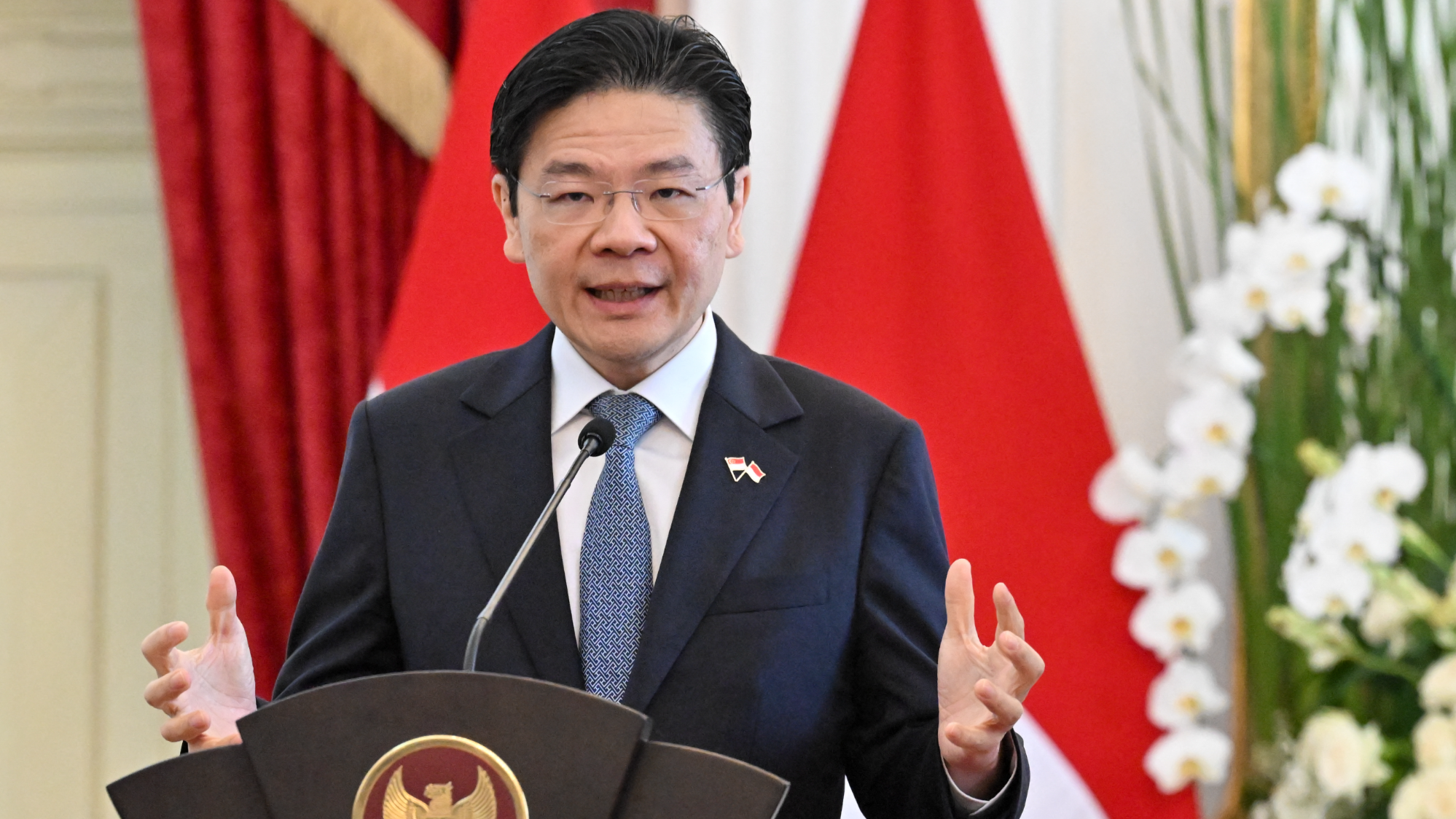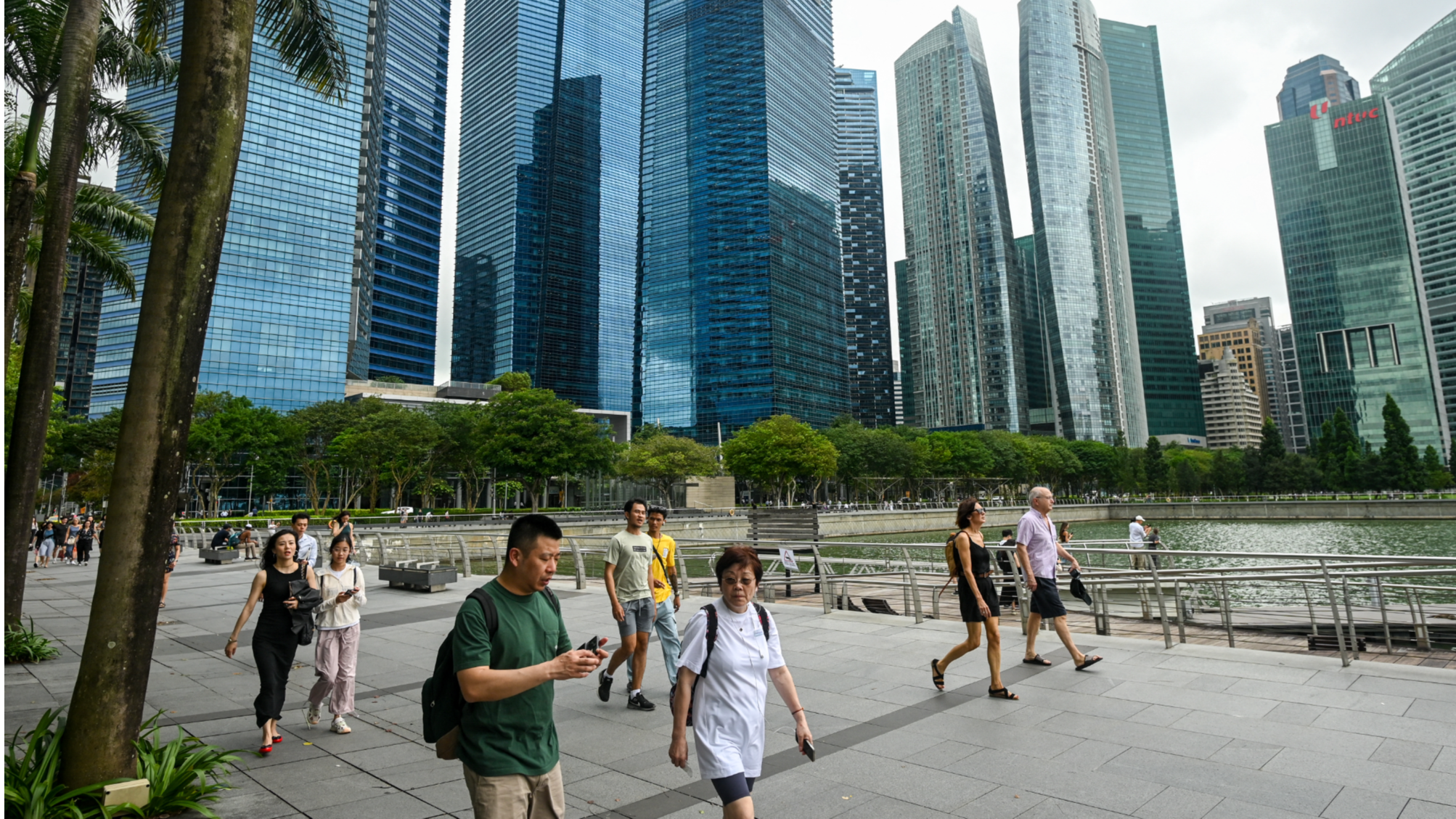
Singapore’s political leaders warned of a tough road ahead after the US unveiled sweeping global tariffs, a move described by an opposition party as scaremongering.
Prime Minister Lawrence Wong sounded the alarm, warning that the likelihood of a full-blown global trade war is growing. The city-state is subject to the minimum 10 percent universal tariff on all exports to the US, among the lowest in Southeast Asia, where other nations have countered with offers to lower their own levies in exchange for leniency from the Trump administration.
“It will spell trouble for all nations especially small ones like Singapore,” Wong said in a five-minute video posted on social media Friday evening. “We risk being squeezed out, marginalized and left behind.”
Senior Minister Lee Hsien Loong, who stepped aside as prime minister in May after two decades in the job, followed with remarks of his own at a community event on Sunday.
ALSO READ: Minister: Singapore disappointed with 10% tariffs, to seek talks with US
“It’s going to affect our trade, it’s going to affect our economy, it’s going to affect our region and it’s going to affect our future,” Lee said. “It’s not good news.”

Singapore’s benchmark Straits Times Index tumbled as much as 8.7 percent, the most since October 2008, amid a tariff-spurred global rout. The city’s highest-ranking trade official on Thursday said Singapore will have to re-evaluate its economic forecast, which was expected to grow 1-3 percent this year even before Donald Trump announced the new levies. That’s down from 4.4 percent in 2024.
“This call by the government ministers about the tariff, in my opinion, is partly to instill fear in the voter,” Tan Cheng Bock, chairman of the opposition Progress Singapore Party said on Sunday. “Don’t just make statements of this kind and scare everybody.”
READ MORE: Singapore raises election spending limits before upcoming general polls
Singapore is scheduled to hold a national vote within a few months, with cost of living pressures top of mind for citizens. The People’s Action Party, which has ruled since the island’s independence in 1965, won 89 percent of the parliamentary seats in its worst showing in 2020 due in part to concerns about the economy.


